- Home
- Aharon Appelfeld
Unto the Soul Page 2
Unto the Soul Read online
Page 2
Just a month ago, everything had been different. In the summer they worked together from morning until late at night. Gad was busy with the people, and Amalia with the house. The pilgrims were bitter, anguished, and easily angered, but Gad would win them over. They brought him the mild fragrance of the Plain, human voices, forgotten prayers, and melodies pleasant to the ear. Hearing their voices he realized how isolated he was, far from the tombs of his parents and from his childhood friends, who owned stores and warehouses and often traveled to the big cities.
Five years earlier he and Amalia had inherited the house from their Uncle Arieh. Uncle Arieh had invited them up to the mountaintop, or to his fortress, as he called it. He had led them from place to place and shown them the graveyard, which everyone called the Cemetery of the Martyrs, may the Lord avenge their blood. He had said to them, “I leave in your hands, children, this holy inheritance. You must watch over it like the apple of your eye. If you guard it faithfully, you will lack for nothing. Many people come here, and they will give you everything. You must demand it of them. You mustn’t be bashful and silent. They aren’t giving you money for nothing. The winter here is long and hard, and except for the crows, there’s not a living soul. You need a lot of faith to avoid lapsing into melancholy. Melancholy is the most implacable of opponents. You may take two or three drinks, no more.” Earthiness imbued Uncle Arieh’s ways. At the age of ninety he savored a good meal like a young man.
For a week they had stayed in his company. He had not exaggerated the virtues of the place. He had praised the good air, the large apples and pears on the mountain slopes. He mentioned the faithful dogs and, of course, the house, which had four spacious rooms in which he lodged the pilgrims who had the wherewithal. He spoke about the details but refrained from generalizations, like a man bequeathing a great estate to his son, so he can withdraw and find repose in a smaller residence, far from the highways and daily business. No slacking or confusion was noticeable in him. At the end of the week he shut his eyes and returned his soul to the Creator. That very day he was buried with his fathers. All the pilgrims had taken part in the funeral that evening. The eulogists had spoken of his loyalty and devotion for sixty years without interruption. The women had wept. Late at night one of the old men had spoken in praise of his power to withstand solitude. It was all by virtue of his faith, which had been no less than the faith of his father, who, like him, had lived for many years. But he hadn’t been privileged to have a large funeral, for he had died during the winter.
Thus, almost without their noticing it, the mountaintop had fallen to their lot. After the funeral Gad had been deeply moved. In a burst of emotion he swore to observe the proper times for prayer, to immerse himself in the ritual bath, and to study the Mishnah. Amalia’s face seemed to grow rounder, like someone who was caught in the wrong place.
“From now on we’re here,” he proclaimed formally.
“And we won’t go back down?”
“It would seem not. What is there down below?”
Thus life had begun here. During the first winter they had felt in their flesh the silence and darkness that padded the house like fluff. Amalia had been seized with excitement and had spoken. Once again she had used the strange words she used to speak in her childhood, and Gad had taken pleasure in them as in an unexpected gift. Gad had been drawn after her and had spoken of the need to free themselves from dense crowding, from pressure, and from outward prayers that sweep away one’s awareness. Then, in great enthusiasm, he had promised Amalia that the pure air would do marvels. Amalia had opened her eyes wide and said she was anxiously awaiting them. A kind of childish wonder had been in her face. So pure was the wonder, for a moment it seemed to him that he was deceiving her.
Afterward the long years had come, mainly dark. The summer was merely the wink of an eye. The darkness returned at regular intervals. There were no surprises except those that came from within.
“When will we go back?” Amalia would sometimes rouse from her visions.
“Where?”
“Home.”
“We have no home. This is our home. What’s wrong with this? We have everything.” It sounded like the consolation offered to prisoners when the sunset touches the bars of their cells and the heart perishes with longing.
CHAPTER 4
They had been up there for six years now. Had it not been for the summer, his life would have been even more restricted. The thought that people would come during the summer and fill the barren mountaintop with their bustle: that was the thought which inspired him to act, and on the strength of which he tormented Amalia and told her she mustn’t sink into sadness. Within him he knew it would be good if she went down to the Plain, married, and brought children into the world. A number of times they spoke about that, mainly in a truncated way and never explicitly. Upon hearing him her face would round into a smile, as though he were talking of something forbidden.
“Do you miss Zhadova?” He would occasionally press her.
“A little, but it will pass.”
She would compress her yearnings within her large breast, and her breast swelled from year to year, testifying with the force of a hundred witnesses that she needed a man and children to suckle. Without these, her body would be corrupted and her wits would be addled. From his own soul he knew her darkness, but he didn’t dare suggest that she descend. True, a few of the pilgrims had set their sights on her, and a couple of brazen ones had dared speak to her directly, but she had recoiled and hadn’t answered anyone favorably. Speaking had always come hard to her. Now, upon the mountain, it was seven times harder.
During the last summer a pilgrim had attached himself to her, a man of about forty, and he had proposed that she go down to the Plain with him. Gad had found them sitting on the stone step and talking. For the first time since their arrival he had seen her sitting in someone’s company, and from a distance she had seemed content. For a moment he was about to walk past them, but the evil spirit within him burst out of his mouth, and he said, “The rooms haven’t been tidied, there’s nothing in the kitchen, and you’re sitting there as if we had servants. If we don’t do it, no one will do it for us.” Amalia was startled, and with the urgent haste of a hunted animal she returned to the house. That was just momentary anger, and he had forgotten about it, but now he remembered the man’s face again, and, as though by chance, he asked, “What did that man want of you?”
“What are you talking about?” She was astonished.
“The man who was talking with you.”
Amalia’s face turned red, and she said, “He asked for my hand.”
“Why didn’t you tell me?”
“I don’t know.”
“Did he please you?”
“Not especially.”
“What did you tell him?” He asked again one evening.
“I didn’t say anything to him.”
“What were you talking about?”
“He was talking.”
Later he said, “If you want to go down, tell me. I won’t stop you. I can live alone here.”
“I’m content here,” she said.
“I’d like you to get married.” He spoke with an elder brother’s voice.
“That time has passed, it seems to me.”
“You’re wrong. I’ve seen older women than you who got married and had children.”
“I’m content here,” she repeated.
Late in the afternoon he worked in the cemetery. He pulled out weeds and straightened some gravestones. The light was soft and, without his noticing, evoked the faces of the people who had been there only a few weeks earlier. “They’re there and I’m here,” he said distractedly. Hidden longings for people once again flooded him and, with them, an oppressive feeling that rose up by itself and gripped the body all about. Now he knew: the summer had died as though it had never been. No one else would come. Amalia would blunt her anger with a few drinks, but not a word would grow up in this wasteland. Formerly he had hoped
he would manage to make her talk and they would sit and converse with each other like friends. Now he knew: muteness already stood at the door. Without his noticing it, his Uncle Arieh’s face rose up before him. Not a day passed but that he thought about him. Two days before his death he had led Gad to the peak near the abandoned Christian cemetery and told him, as though in secret, “There is no place more beautiful.” He spoke with a kind of simplicity, as though he had just discovered it. In Zhadova they had spoken of Uncle Arieh with admiration, but in time that admiration had become tinged with a kind of suspicion that his life was not all that it seemed. But those who had come up here and been saved spoke of him with glowing faces, as though he were part of their salvation. Of the horrors that had been committed here several generations ago, he did not speak. Uncle Arieh had not wanted to talk of it. “The Martyrs,” he used to say, “may the Lord avenge their blood, left the world as though with drawn swords.” After his wife’s death he had come here. He had still been a young man. Since then, sixty years of uninterrupted isolation. Strange, he never mentioned Zhadova except by chance, as though he had never been there.
Nor did Gad tell Amalia what had taken place there. He told her only this: Our grandfather’s grandfather, Simha Ber, was among the martyrs. His tombstone was a small, slender one, planed down by the years and by rain, standing in the middle of the cemetery. Amalia used to come and prostrate herself on his grave during the penitential month of Elul.
As Gad stood in the open, a kind of sudden dread gripped him. There was nothing. The sun glided over the clouds, and the evening was near. But there was no darkness yet. Below, on the crests close to the plateau, as always, sheep were scattered. Wagons rolled along lazily as the peasants returned home on paths between the fields. A kind of serenity rose up thickly from the green meadows. But to him, for some reason, it seemed that in a short while a dreadful scream would be heard. He took up the hoe and hurriedly turned in the direction of the house. “No one will save us in our hour of distress.” A reflection flitted through his mind, and he hastened his steps.
He found Amalia next to the window, a drink in her hand. “I had a sudden urge for a drink,” she said.
“I’ll join you. That bottle was brought to us by a Jew from Kolomay. I didn’t want to accept it from him, but he wouldn’t give in. Everybody feels sorry for us. They don’t know that these isolated places have beauty.”
“True,” said Amalia and opened her eyes.
“Also some hidden power.”
“I’m a little bit frightened.”
After a few drinks he grew excited and spoke very emotionally about the cemetery, calling it a precious graveyard, which closed its gates before no one.
Amalia was astonished by his words and didn’t take her eyes off him. For some reason it seemed to her he had grown older during the past few days, and now he looked a little like Uncle Arieh, and the hidden affection she had secretly harbored for her older brother since her childhood surged up with pity in her, and she said, “You’re working too hard.”
“You’re mistaken, my dear.” He spoke to her softly. “I’m barely doing my duty. I have to do more.”
“You get up very early.”
“I’m not working hard. Believe me. This place gives us more than we deserve. We have plenty of fruit and vegetables, a roomy house, and firewood for heat. Below people are freezing, but we, thank the Lord, lack nothing. We are protected on every side.”
“And the peasants won’t do us any harm?” She touched upon his hidden dread.
“What are you talking about? We’re protected on every side. The peasants down below know very well who is protecting us.”
“Sorry. I’m always frightened.”
“We’ve been up here for six years. Has anyone ever done us any harm?”
Later, silence fell upon them. Gad, indeed, tried to revive the conversation, but he only managed a few stammers and a couple of sentences whose meaning Amalia didn’t catch. Gad kept drinking, and Amalia didn’t comment to him about it. Now she sat and observed him, as though expecting some word that would light up her darkness.
CHAPTER 5
Later the rains slashed down and shut them into the house. Amalia worked in the cellar, sorting vegetables and churning butter, and when she came up from there, the smell of moist earth wafted from her clothing. Gad was busy repairing the attic. Contact with the wooden planks brought forgotten odors of home to his nostrils. Now the Plain seemed to him an obscure realm, detached from his life. Sometimes it occurred to him that one day he could rent a wagon and return to Zhadova. Once he had even dreamt that he and Amalia were riding on two bright horses, galloping across fields and reaching their native city. Everyone came outdoors and stood in amazement. In his heart he knew that he would never abandon the peak. A secret covenant had been sworn between the peak and its guardians, a stern covenant, unwritten, passed on from generation to generation. Up to now no one had ever left. They had all died on the mountaintop, and they were buried in the last row, which was called “the Guardians’ Row.” Uncle Arieh was buried in that row, and when the day came they would bury Gad there too. If Amalia married and had children, they would come and carry on the dynasty. Sometimes it occurred to him that if he insisted strongly enough, she would marry. If he could write, he would have written to her at great length.
Toward evening Amalia came up from the cellar and made two corn pies, one filled with cheese and one with plums, and they huddled close to the table next to the window and ate. Gad liked those pies a lot. Since morning he had been yearning for them. After the meal he closed his eyes and sang a lullaby, a song full of longing, bringing another sort of sadness from distant parts. Since childhood, she had liked to hear his voice, and now, as he sat at the table, it seemed to her that he was filling her with secrets.
During that season he hardly spoke, just a word here and there, remnants of his speech. Even after a drink, talk was hard for him, not to mention prayer. Since the people had left the place he had not prayed. He very much wanted to pray, but every time he prepared himself to stand up and do so, the words caught in his throat. Two years earlier, on a dark night, he had tried to say a sentence to Amalia, and he had choked. Greatly angry, he had pounded his head against the wall. Finally the obstruction had been torn from his throat, and he had said, “How is it that all Jews pray, and it’s hard only for me?”
“You pray in another way.” She tried to comfort him.
“That isn’t so.”
“You watch over this holy place.” The words fell into her mouth.
Gad chuckled, and his laughter echoed alarmingly.
“Did I say something silly?” she said and fell silent.
Afterward the rain stopped and the evening opened up. Amalia gathered the things from the table with quiet, restrained movements. Gad rose from his seat and went outside. On his way to the cemetery he stopped for a moment next to the bare acacia tree. Amalia’s movements appeared clumsier to him for some reason, as though she were trying to hide a sack of potatoes underneath the bed.
When he reached the cemetery, he forgot everything. He was glad the rains hadn’t damaged the tombstones. The drainage canals he had dug in time had borne off the water well. The tombstones projected up over the raised hillock. Gad knew every grave. The saints lay in three rows, in the first row the men, in the second the children, and in the third the women. At some distance, the row of the guardians. Once he had asked Uncle Arieh the meaning of that arrangement, and his uncle had not given him a clear reply. Nor did anyone else know the reason. Now he no longer sought the meaning. The hours here were the loveliest of the day.
More than once Amalia had reproached him for spending too long in the cemetery, but he had ignored her reproaches. In fact, he didn’t stay longer than six or seven hours a day, but those hours inspired sights and visions. Here he sometimes saw his small native city, his father and mother, and his two little brothers, who had died in the great typhus epidemic. In the summer it was
different, of course. In the summer the plot was stripped of its blue color and of the silence. People would prostrate themselves on the graves and shake the stones. Sobs were raised up without shame, and whenever a woman fainted, the people around her would carry her out.
As he stood there, thirst for a drink assailed him. If it hadn’t been evening, he would have gone down to the gentile tavern and sipped two or three drinks. The smell of tobacco mingling with the smell of alcohol would drive away the sadness from within him, but he didn’t like it when Amalia reproached him for it.
When he went back in, Amalia’s face was red, and the yellow mark shone on her forehead. It was evident she had drunk from the bottle and overdone it.
“What’s the matter?” he asked.
“Nothing at all. Everything is fine.” She spoke in a voice not her own, a jolly voice.
“I went up there. The drainage canals worked well.”
“You worry too much about them,” she said, giggling.
You mustn’t talk that way, he was about to tell her, but he said nothing.

 Long Summer Nights
Long Summer Nights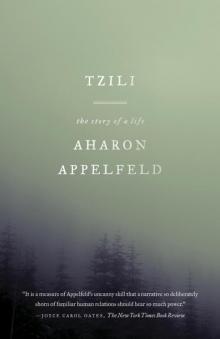 Tzili
Tzili The Conversion
The Conversion The Iron Tracks
The Iron Tracks All Whom I Have Loved
All Whom I Have Loved Laish
Laish The Retreat
The Retreat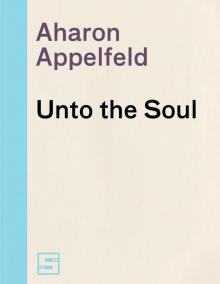 Unto the Soul
Unto the Soul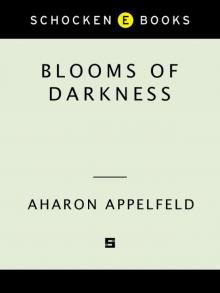 Blooms of Darkness
Blooms of Darkness The Man Who Never Stopped Sleeping
The Man Who Never Stopped Sleeping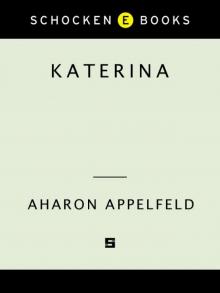 Katerina
Katerina Until the Dawn's Light
Until the Dawn's Light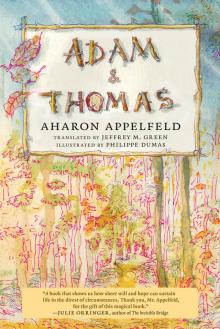 Adam and Thomas
Adam and Thomas Suddenly, Love
Suddenly, Love